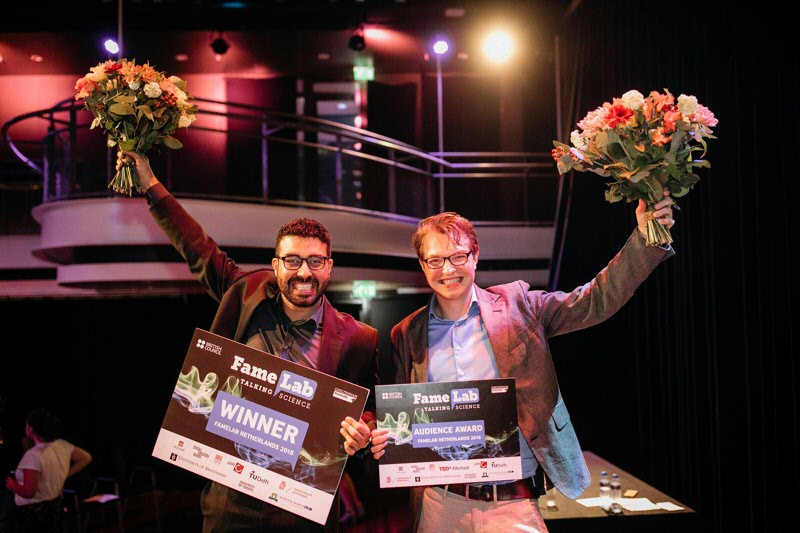Student Nanoscience wint Audience Award op FameLab NL
In drie minuten een moeilijk wetenschappelijk concept uitleggen aan een breed publiek. Marcel Eleveld, masterstudent Nanoscience aan de Rijksuniversiteit Groningen, kan dat. Dat bewees hij tijdens FameLab NL in Utrecht, waar hij op 9 mei de Audience Award won met zijn praatje over Eigen’s paradox.
FameLab is de grootste wetenschapscommunicatiewedstrijd ter wereld, waar 31 landen aan meedoen. Wie is het beste in staat om in drie minuten een moeilijk concept uit te leggen aan leken, zonder gebruik van Powerpoint, en het publiek daarbij te boeien? Volgens het publiek was dat Marcel, die uitlegde hoe de Eigen’s paradox - je hebt informatie nodig om een systeem te maken dat informatie kan kopiëren, maar hoe krijg je genoeg informatie bij elkaar zonder zo'’n systeem? - samenhangt met het ontstaan van leven. Zijn prijs is dat hij in januari 2019 een TedTalk mag geven bij TEDx Alkmaar.
De juryprijs ging naar Jaïr Santanna van de Universiteit van Twente.

Meer nieuws
-
17 februari 2026
De lange zoektocht naar nieuwe fysica
-
10 februari 2026
Waarom slechts een klein aantal planeten geschikt is voor leven
